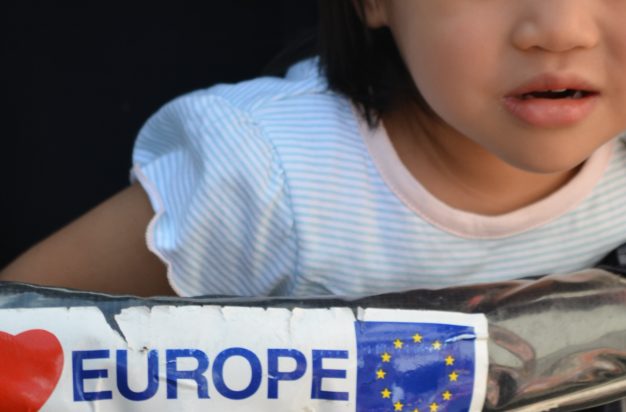
EU committee sets out plans to protect children from a life of poverty
A Pan-European alliance which champions laws affecting cities has outlined its commitment to improving the well-being of children and protecting them from violence, poverty and social exclusion.
The European Committee of the Regions (CoR) represents cities and regions across the European Union, and comes together to debate and advising on new laws.
One of its branches, the Commission for Social Policy, Education, Employment, Research and Culture (SEDEC) met recently in the Italian city of Ancona to highlight how the causes of child poverty can greatly differ according to local factors, or ‘specificities’ as they called them.
This was underlined in a draft opinion adopted by members, coming almost three years after the establishment of a European Child Guarantee by the European Union.
Cities and regions’ representatives also stressed the need to implement local and regional child guarantee action plans that address territorial specificities ensuring free education, childcare, school canteens and healthcare for the most vulnerable children.
‘We must allow all children to experience a better future’
It was ‘essential’, they said, to strengthen the role of local authorities guaranteeing them technical assistance and direct access to European funds for children, regions and cities underlined.
SEDEC member Enzo Lattuca, who is also President of the Province of Forlì-Cesena and Mayor of Cesena, said: “We have the ambition to extend the approach that inspires the Child Guarantee and raise the standards for all European minors. We cannot limit ourselves to guaranteeing access to primary goods or essential levels for the most disadvantaged children.
“We must allow all children to experience a better future than what we guarantee today, increasing opportunities in every sector, from early childhood care to school and sport. I am happy that nobody voted against this opinion in today’s meeting, because on childhood we have to find shared answers and unite the sensitivities of the different political forces.”
In a separate draft opinion, SEDEC also shone a light on the importance of local and regional authorities in establishing localised child protection systems, initiatives which can promote a community culture of zero tolerance towards any form of violence against children, as well as protect them from poverty, vulnerability and social exclusion.
Fellow member Peter Kaiser, and also President of the Regional Government of Carinthia, was keen to stress how the phrase ‘children are our future’ should not be an empty one.
“Politics owes our children the best they can give at local, regional, national and European level,” he said. “Our common goal must be to enable the youngest European to grow up safely and without fear. Their demands for being listened and respected, for support and information, for protection and guidance must be met with open ears and hearts.
“To this end, the European Commission must also include regions in its upcoming initiatives, where politics plays a crucial role when it comes to child protection, particularly in cooperation with social institutions and the education sector,” added Kaiser.




